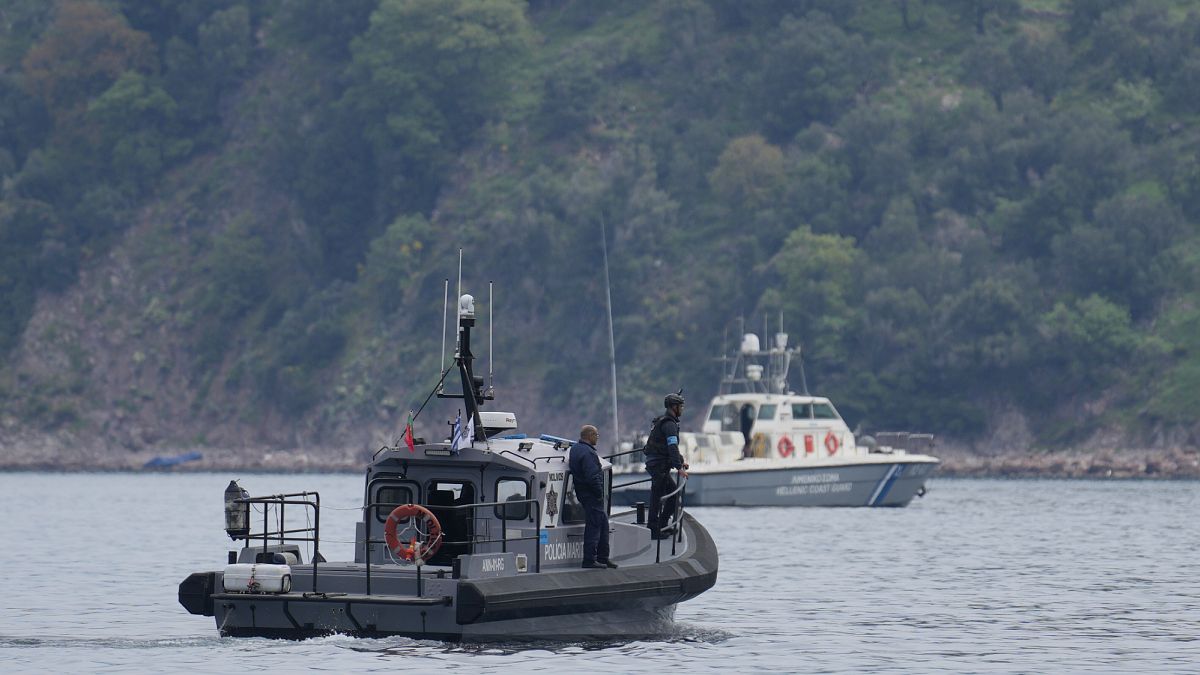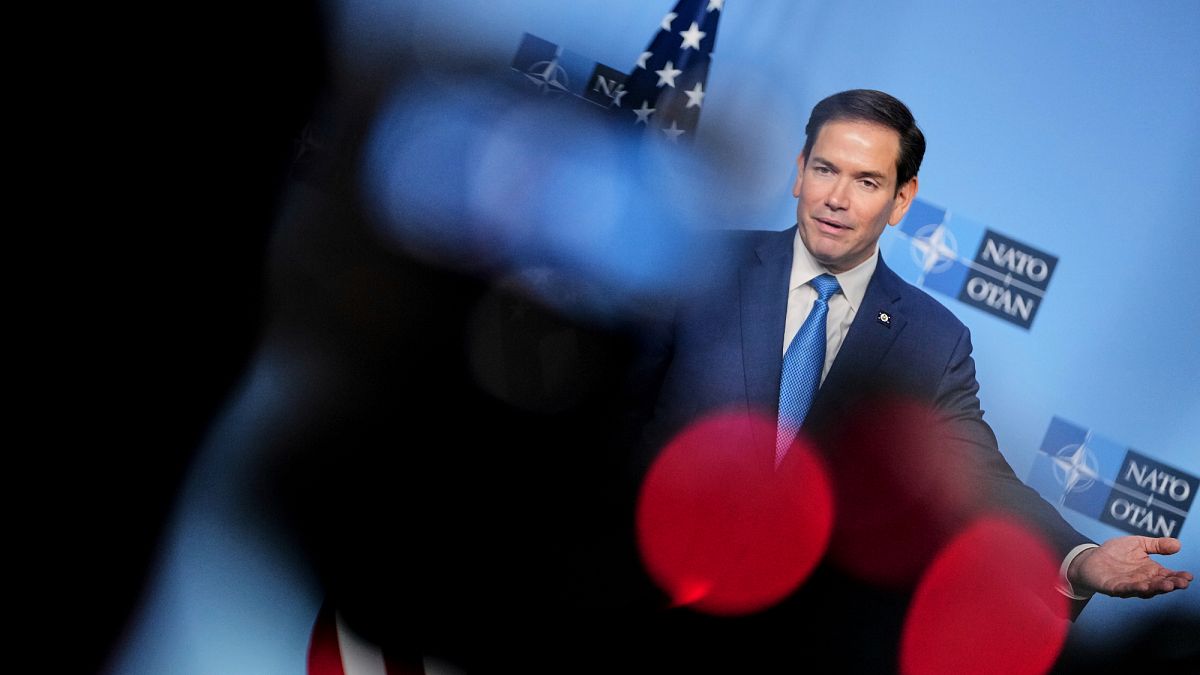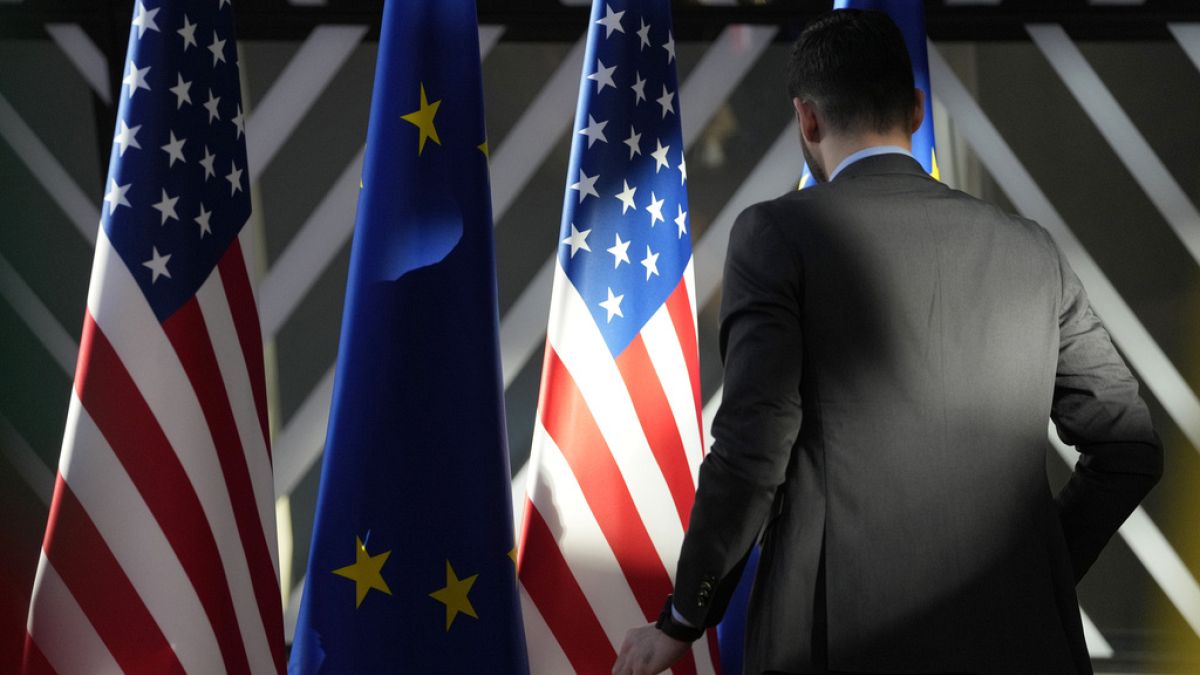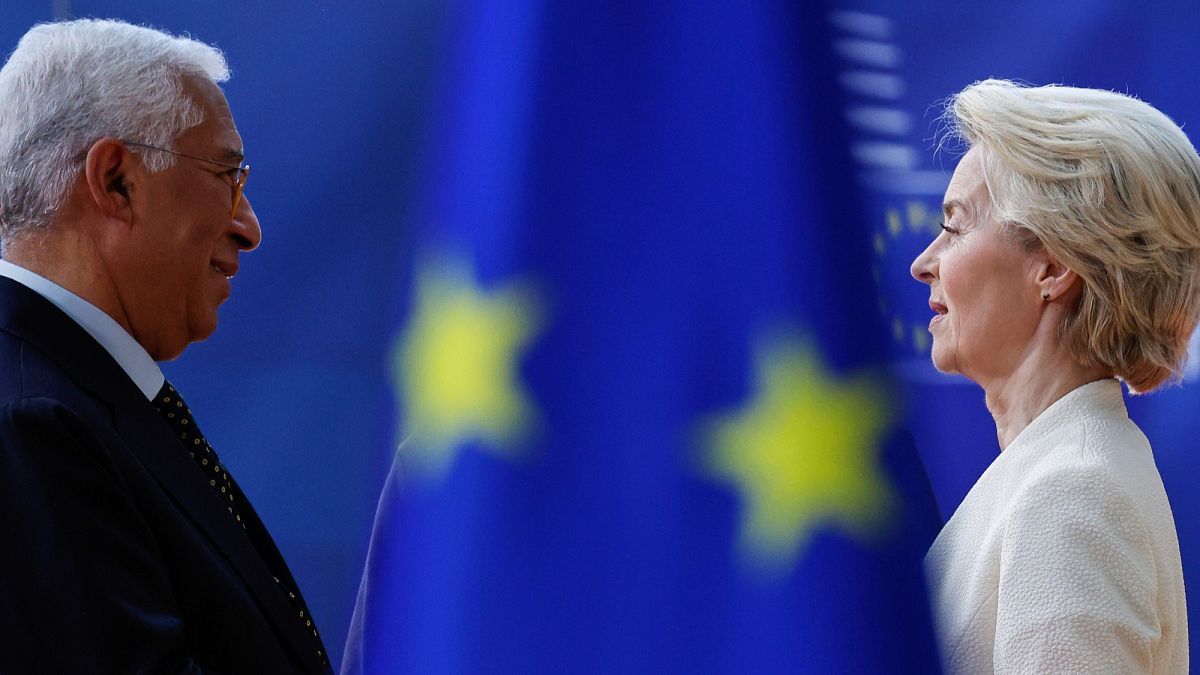As the world is facing a second Donald Trump term, German MPs speak with Euronews about the biggest challenges Europe could face and the future of the transatlantic relationship.
Germany, one of the US's closest allies, has spent months this year preparing for both a second Donald Trump term, as experts warned for months that Germany may need to beef up its European and NATO defence strategy as Trump touts an "America first" approach.
Vice-Chair of the Foreign Affairs Committee of the German Parliament and opposition (CSU/CDU) politician Thomas Erndl told Euronews at the Aspen Institute that all eras have challenges.
"European security is particularly at risk now, and we need to take on a tougher, stronger role. (Russian President) Putin only understands the language of strength, and we need to drive and demonstrate this from Germany," he said.
On the subject on the future of the transatlantic partnership, he said, "every investment in a partnership must also be justified to voters, and there has to be something in return. We have to deliver on that," adding that that it needs to be revitalised.
"The USA will not be able to handle the rivalry with China alone; it can only be managed together in cooperation with Europe, with a strong Europe. And that’s why there’s a good reason for the USA to continue to rely on this partnership," he says.
Transatlantic co-ordinator and FDP deputy parliamentary group leader Michael Link warns that there is more at stake for the world if Ukraine loses the war.
"We should never forget that if Russia wins in Ukraine, China wins, too. So the idea to say maybe let's shift some resources to restrain Chinese activities is an illusion to think that you have to shift it to Indo-Pacific. China is not a Indo-Pacific challenge. China is a global challenge. Look to Chinese activities in Latin America or in Africa or in Europe."
American Diplomat and President of the American Academy Berlin Daniel Benjamin says that Europeans are worried about what will happen to security arrangements.
"There's no country in Eastern in the former Central and Eastern Europe that is pro-Putin in a really big way. Hungary is perhaps the exception. They may want a different path from the established EU path, but they're not necessarily pro Russian," he says.
"If you have a member of the European Union who is violating the rules in many ways, then we really have to say it very clearly to Hungary. Hungary as a NATO member, Hungary as a EU member, needs also to show solidarity to EU values and to our joint defence. The sides play the side game Orban is doing with the Russian president and others, also with the Chinese president is a serious challenge for the unity of NATO and EU," Link adds.
With the polarising US election results, the German government could be inspired to repair their rifts as Europe enters a new chapter of independence.

 4 months ago
42
4 months ago
42






 We deliver critical software at unparalleled value and speed to help your business thrive
We deliver critical software at unparalleled value and speed to help your business thrive






 English (US) ·
English (US) ·